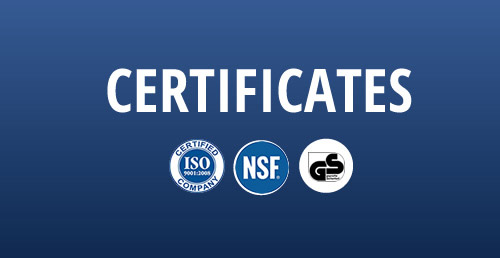m20 chemset anchors
M20 Chemset Anchors An In-Depth Look
When it comes to construction and civil engineering, anchoring systems play a crucial role in achieving structural integrity and sustainability. Among a variety of anchoring solutions, M20 chemset anchors have emerged as a preferred choice for many professionals in the industry. This article will explore the features, applications, benefits, and installation procedures of M20 chemset anchors, providing a comprehensive overview for engineers, builders, and contractors.
What are M20 Chemset Anchors?
M20 chemset anchors are a type of structural anchor that utilizes chemical adhesives to achieve a strong bond between the anchor and the substrate, typically concrete. The M20 designation refers to the metric sizing of the anchor, which has a nominal diameter of 20 mm. These anchors are composed of a steel bolt, a chemical adhesive (usually epoxy or polyester-based), and sometimes a sleeve to aid in anchoring. The chemical anchoring process involves mixing the adhesive and inserting it into pre-drilled holes before placing the anchor bolt.
Features of M20 Chemset Anchors
1. High Load Capacity M20 chemset anchors are designed to withstand substantial loads, making them suitable for heavy-duty applications. Their load capacities are often significantly higher than traditional mechanical anchors.
2. Versatile Application These anchors can be used in various environments, including wet, dry, and even underwater conditions. This versatility makes them ideal for a wide range of projects, from residential buildings to industrial facilities.
3. Resistance to Corrosion Many M20 chemset anchors come with corrosion-resistant coatings or materials, allowing them to withstand challenging weather conditions, which is particularly beneficial for outdoor installations.
4. Injection System Most M20 chemset anchors utilize an injection system for the adhesive, ensuring that the bonding agent is evenly distributed and effectively fills the voids in the substrate.
Applications
M20 chemset anchors are widely utilized in various applications, including
- Structural Connections They are ideal for attaching structural elements such as beams, columns, and trusses to concrete foundations.
- Mechanical Installations These anchors are often used to secure heavy machinery and equipment in industrial settings, providing stability and safety.
- Pre-cast Concrete M20 chemset anchors are commonly employed in pre-cast concrete applications where reliable fastening is essential.
- Bridges and Roads The strong bonding characteristics of chemset anchors make them suitable for infrastructure projects, including bridges and roadways
.m20 chemset anchors

Benefits of Using M20 Chemset Anchors
1. Enhanced Performance The chemical bonding process leads to enhanced performance in terms of load-bearing capabilities and resistance to dynamic forces.
2. Ease of Installation M20 chemset anchors can typically be installed quicker than traditional mechanical anchors, reducing labor costs and project timelines.
3. Reduced Damage to Surfaces Unlike mechanical anchors that require expansive drilling, chemset anchors minimize the risk of damage to surrounding materials.
4. Adaptable to Varied Conditions Their ability to perform well in both dry and wet conditions makes them versatile for various construction scenarios.
Installation Process
The installation of M20 chemset anchors involves several key steps
1. Site Preparation Ensure the surface is clean and free from debris, dirt, or moisture for optimal adhesion.
2. Drilling the Hole Use a hammer drill to create a hole of the appropriate diameter and depth according to the anchor's specifications.
3. Cleaning the Hole After drilling, the hole must be cleaned using a vacuum or a blow-out bulb to eliminate dust or debris that could hinder the adhesive bond.
4. Injecting Adhesive Prepare the adhesive according to the manufacturer’s instructions and inject it into the hole, ensuring it fills the cavity completely.
5. Inserting the Anchor Quickly insert the M20 anchor into the hole before the adhesive begins to set. Give it adequate time to cure according to the manufacturer's guidelines.
Conclusion
M20 chemset anchors are an essential component in modern construction, offering a robust, reliable, and versatile anchoring solution. Whether for heavy machinery, structural connections, or infrastructure projects, their impressive load capacity and ease of installation make them a favored choice among professionals. As the industry continues to evolve, these anchors play a pivotal role in ensuring structural integrity, safety, and longevity across various applications.
-
Weatherproof Plastic Expansion Anchors for OutdoorNewsJun.06,2025
-
Sustainability in the Supply Chain: Eco-Friendly TEK Screws ProductionNewsJun.06,2025
-
Load-Bearing Capacity of External Insulation FixingsNewsJun.06,2025
-
Double Head Bolts: Enhancing Efficiency in Industrial MachineryNewsJun.06,2025
-
Corrosion Resistance in Chipboard Screws: Coatings for Wholesale DurabilityNewsJun.06,2025
-
Butterfly Toggle Bolts : Enhancing Structural ResilienceNewsJun.06,2025
